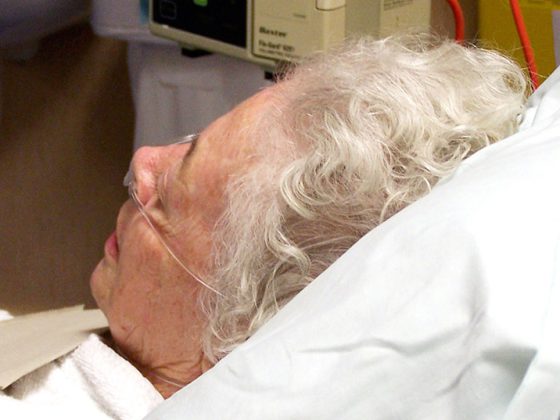Adjuvant endocrine therapy for breast cancer has adverse effects on bone health. Possible consequences are treatment-induced osteopenia, osteoporosis and fractures. It is known that antiresorptive substances such as bisphosphonates counteract this process to a certain extent. Denosumab also provides such a benefit. According to a study presented at ASCO, it should be preferred for osteoprotection in the future.
Fractures are a common side effect of treatment with aromatase inhibitors. Here, the use of antiresorptive therapies is useful and may possibly also contribute to improved survival of breast cancer patients.
The objective of a study presented at the ASCO Congress was to evaluate the effects of denosumab in postmenopausal patients with early hormone receptor-positive (HR+) breast cancer. All patients were treated adjuvantly with aromatase inhibitors. Denosumab blocks RANKL and thus directly blocks osteoclast formation, function and survival. Denosumab is administered subcutaneously every six months.
Fewer fractures
The randomized, placebo-controlled phase III trial enrolled 58 centers and a total of 3425 postmenopausal patients. They were randomized to receive either denosumab 60 mg or placebo every six months. The primary endpoint was a first clinical fracture. Secondary endpoints included survival data, bone mineral density, and vertebral fractures.
Denosumab was shown to be clearly superior to placebo in the primary endpoint. The hazard ratio was 0.5 (95% CI 0.39-0.65, p<0.0001), meaning the risk of fracture was halved. A total of 176 fractures occurred in the placebo arm and 92 under denosumab. The halving of risk was found in both subgroups, viz:
- 1872 patients who had normal bone mineral density at baseline (HR=0.44, p<0.0001).
- 1548 patients who already had osteopenia at baseline (HR=0.57, p=0.0021).
Denosumab also halved the incidence of vertebral fractures. Survival data were not available at the time of presentation.
Improved bone mineral density
There were no differences between the placebo and denosumab groups in the occurrence of new adverse events (1334 vs. 1366) or serious adverse events (511 vs. 521). No osteonecrosis of the jaw was found.
In addition to the positive effects on fracture risk, denosumab also significantly improved bone mineral density in the lumbar spine (9.99%), hip (7.88%), and femoral neck (6.49%) at 36 months compared with placebo.
The authors conclude that denosumab is highly suitable for osteoprotection in breast cancer patients on aromatase inhibitors and should therefore be a preferred option in this population.
Source: ASCO Congress, May 29-June 2, 2015, Chicago.
InFo ONCOLOGY & HEMATOLOGY 2015; 3(8): 4.











